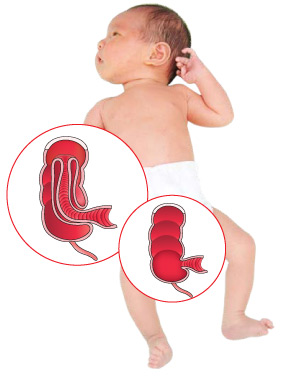Most parents confuse food intolerance with food allergies. They are NOT the same. It boils down to the basic understanding of its causes.
Over the past five decades, the prevalence of food allergies has increased dramatically in many countries, especially among children.
However, food intolerance remains a much more common problem in children compared to food allergy.
Considering the prominence of both, you are encouraged to identify the risk factors in early life rather than trying to treat your child later.
| Food Allergies | Food Intolerance | |
| Causes |
A food allergy is an adverse reaction of the body’s immune system to an ingredient in certain food. The cause of allergy remains unknown, but occurs as an over reaction (hypersensitive reaction) of the immune system to various food |
Food intolerance is a digestive system response rather than an immune system response. It occurs when something in a food irritates a person’s digestive system or when a person is unable to properly digest or breakdown the food, especially if larger quantities are consumed. |
| Symptoms |
Symptoms of food allergies usually develop very rapidly, appearing within seconds to two hours. Prominent symptoms of food allergies include skin reactions and breathing difficulties. Others are nausea, vomiting, bloating, and diarrhoea. |
Symptoms of food intolerance can develop fast, within minutes to days, and they usually worsen as it develops. Because food intolerance involves the digestive system, symptoms include frequent burping, nausea, vomiting, bloating, abdominal pain, diarrhoea. |
| Now & Beyond |
Food allergies can be more severe than food intolerance and should not be taken lightly. They can elicit a sudden and fatal reaction. Allergies are often lifelong and whilst treatable, there is currently no specific cure. However, possibilities are there that in time, your child may outgrow certain foods. |
Food intolerance do not pose major health issues. However, if your child is intolerant to cow’s milk and given less amounts or an alternative as a result, you need to make sure that he still receives the nutrients required by his body. As your child grows older, his intolerance to that food(s) may resolve spontaneously. |
| Watch out |
Keep an eye on these foods: Children – cow’s milk, egg white, soya and wheat |
Food intolerance can also be due to some chemical ingredients added to food to enhance taste or provide colour, which the body is unable to tolerate. It is important to know that it may not be the food, but the ingredients that are contained in it that cause the symptoms. |
Early Prevention Against Food Intolerance
Parents, take note!
- Breastfeed your child exclusively for 6 months. This works well as primary prevention for food allergy, and likely as well as for food intolerance.
- Cook healthy, nutritious food for your child and try to eat out less to avoid foods that may contain additives. Always read food labels and check the ingredients for suspected triggers.
- If your child is intolerant to cow’s milk, try consuming less amounts, but more frequently. Consult your doctor if you are in doubt.






Comments